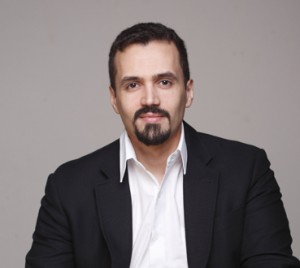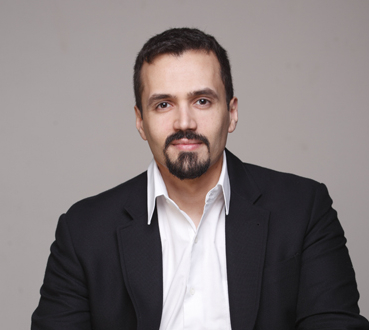
Some things are clear after President Mohamed Morsy’s first 100 days, others we wait to see. (Incidentally, the 100 days did begin from the day he was elected. Not from the date of his new government, nor should they be measured in ‘biblical days’…) The ensuing question is, however: is Morsy being assessed as the ‘president for all Egyptians’, or not?
There is a variety of commentators’ perspectives on Morsy’s accomplishments or lack thereof over the past 100 days. They differ, of course, but broadly the state media (and Islamist media) have lined up to cheer Morsy, while the independent and non-Islamist outlets are generally critical of him. Bias, prejudice and a lack of objectivity in Egyptian media is unsurprising and hardly unique worldwide.
But there is something a bit different in Egypt in this vein. The state media cannot be expected to be critical of their ultimate boss. The Islamists view Morsy as their candidate, and as such are unlikely to criticise him publicly. As for the rest, they generally do not trust him. In all cases, it is hard to argue he’s being assessed as the ‘president for all Egyptians’.
It is that issue of trust that impacts upon assessing Morsy’s record for the past 100 days. If another presidential candidate had done much the same as Morsy in the past 100 days, the reception would have been different. Morsy emerges directly from the upper echelons of the Muslim Brotherhood: an organisation that comes with a great deal of baggage. During this revolutionary period, many Egyptians have been keen to see political movements behave in a way that prioritises the interests of all Egyptians over and above partisan interests. Few have delivered on that score, and the Muslim Brotherhood, with the greatest amount of power to actually effect change, has received the lion’s share of criticism in this regard. Moreover, as an Islamist organisation, many assume that its commitment to the rights of non-Muslims (and indeed, non-Islamist Muslims) is less important than its political calculations in maintaining the political support of Salafi communities.
In the past 18 months, neither the Muslim Brotherhood in general, nor Morsy specifically, has been able to change that assumption. When Morsy gave his speech at Cairo Stadium a few days ago (a speech that was meant to be about the 1973 war, rather than the president detailing his achievements, but never mind), he was greeted by applause. But that crowd was not Egypt. It was a predominantly Islamist crowd: a crowd that had Muslim Brotherhood members bussed in from outside Cairo, and which had among its ranks Tarek El Zomor – one of those radical Islamists convicted in 1984 for conspiring to assassinate President Anwar Al-Sadat. In such a rally, it is difficult to characterise the presidency as one for ‘all Egyptians’.
Irrespective of the speech: the level of sectarian tension in particular has risen, and many non-Islamists are concerned that the forthcoming constitution will enshrine an ultra-conservative, Islamist vision of society in law. It is telling to see that the mainstream Muslim religious establishment of Al-Azhar has been quite distinct from the Islamist political sector on most, if not all, political issues: this is not a Muslim versus non-Muslim discussion, or an Islamic versus non-Islamic one. It is, however, a matter of social cohesion, a matter that all Egyptians should be concerned about.
These are not the direst issues facing the overwhelming majority of the country; those issues relate to the economy, security and so forth. However, the ability of the presidency to face those challenges and be fairly judged for tackling them is impacted by whether or not he is perceived to be ruling Egypt through a national consensus. At present, Morsy is viewed primarily as a member of the Muslim Brotherhood at the helm, a natural enough situation in countries where it is politics as usual. Yet, Egypt is not in that situation; it is in a revolutionary phase, and expectations of the first democratically elected president, particularly one that claims to be informed by heavenly ethics and divinely inspired ideals, are justifiably high. It is no less the case for a president that has, it should be repeated, that claimed to be a president for ‘all Egyptians’.
That claim should dictate a certain response from non-Islamist forces towards Morsy; one that cannot be characterised as spiteful, but constructively critical. The end of his first 100 days coincides with a decision from Morsy to release all political prisoners that were imprisoned from 25 January 2011, to the date of his inauguration. It is, objectively speaking, a good decision, and one that all forces in Egypt ought to recognise and celebrate. But the end of Morsy’s first 100 days also coincides with something else; the anniversary of the Maspero massacre. Twenty seven activists, mainly Christian, were killed in clashes with the Egyptian military at Maspero. Yesterday, there was a march in Cairo to remember those who had fallen, including the famed hero of the revolution, Mina Daniel, who was only 19 years old. President Morsy was not at that march. He was in Uganda celebrating their national day.
This coming Friday, many non-Islamist movements, including Hamdeen Sabahy (who came third in the presidential contest) are calling for nationwide rallies to demand the revolution be fulfilled: that the constitution be written by a body representative of Egypt’s diversity; that a minimum wage be implemented; that corruption be fought; that those involved in violence against Egyptian civilians from the beginning of the revolution until now be brought to justice; and other revolutionary demands.
Clearly, there is a large swathe of public opinion that does not think the president’s first 100 days have met expectations. It would be a mistake for the presidency and its allies to consider that all the country is neatly divided into people who love the president and those who hate him. There are many who are simply unsatisfied with the president’s attempts after having given him the benefit of the doubt. As the country moves forward in establishing a new constitution, and tackling the core problems of Egyptians at large, that is something for the presidency to keep in mind. Many wait to see if this president truly is a revolutionary one for all Egyptians, or not.
“Dr H A Hellyer, a non-resident fellow at the Brookings Institution, is a Cairo-based specialist on Arab affairs, and relations between the Muslim world and the west. A fellow of the Institute of Social Policy and Understanding, he was previously senior practice consultant at Gallup, and senior research fellow at Warwick University. Find him online @hahellyer and www.hahellyer.com.”



